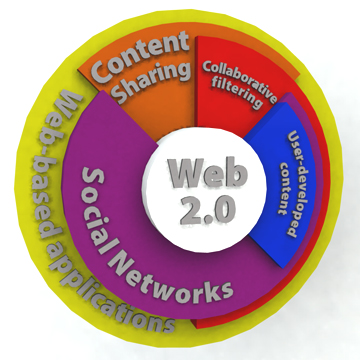What is Web 2.0?
Web 2.0 is about revolutionary new ways of creating, collaborating,
editing and sharing user-generated content online. It's also about ease
of use. Web 2.0 based sites offer you an interactive user interface, storage and software facilities through your browser. The most common examples of Web 2.0 technology enabled websites are-
social media networks, video sharing websites, blogs, wikis, web
applications such as facebook and hosted services.
The Web 2.0 sessions were organised by the CTA with the collaboration of the Faculty of Agriculture and the Food Agricultural Research Council.
My personal experience
"What is Web 2.0 tools? How and where to use Web 2.0 tools?", were the questions that were not clear to me before being selected to this course. But now, after the third session of the course, I can already say that I am very at ease with Web 2.0 tools. In fact, some of the web 2.0 tools were already being used everyday by people without even knowing it. Many tools such as RSS Feeds, Blogs, Google docs, Google mapping were hand-on tools that we, people never realised their importance. In addition to that, it enables people for quick updates without any effort.
I'm enjoying my Web 2.0 sessions since I'm having a great experience in getting acquainted with those tools. Moreover, I noticed that Web 2.0 tools are very easy, interesting and save in time.
These sessions are more easier with the help of the trainers and the facilitator. They were so energetic, attentive and they create a cossy atmosphere which make the practical sessions even more enjoyable.
From my experience till now, I would say that Web 2.0 makes the beauty of the internet!!

